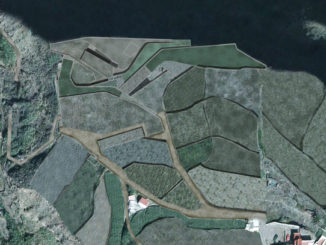Selecting the right landscape architecture school can be hard, however, there is no list or ranking that will provide everyone with the answer. There are many factors in deciding which school you should attend and the following list (in no order) will help you with that decision.
Location
Where are you located? If you wish to work in your local area and design
landscapes within your city or town then maybe the best choice is to select the
local university that provides a landscape architecture course.
If you wish to work in New York, London, Sydney, Shanghai, Singapore, Cape Town or your nearest big city if may be better to select a university within that city as you will be able to spend time learning more about the location and connecting with the local profession.
Rankings
There are different rankings for universities around the world and many are
based on the overall university, not the program. I would look at the program
rankings and whether it differentiates between undergraduate and postgraduate.
Rankings should be only one factor in your decision and not the only consideration.
Fees
Although education is an investment in yourself and it should be the best you
can afford, you need to consider the fees and whether you can financially
afford the fees now and in the future. The stress the fees (loans) may lead you
to have regrets and disdain for the profession, therefore you need to weigh up
the financial implications of the course you are selecting.
Entry Requirements
When reviewing the various courses, it is best to review the entry requirements
as they differ between universities. Some programs look at academic record and
scores, whilst others may focus on your portfolio and interview. Always seek
advice from the university on requirements to best understand the level and
quantity of information they require.
Program/Course
There are a variety of landscape architecture courses and they fall into the following categories – design, technical, research, and hybrid.
Design
The design courses are very strong on theoretical conceptual design and seek their students to immerse themselves in studios developing concepts and understanding the theory of landscape architecture
Technical
Technical courses focus on a broad range of topics and seek to provide students with a technical (and sometimes scientific) grounding allowing them to have a greater understanding of realising the design.
Research
Courses founded in research (design or theoretical) seek to study landscape architecture either past theory (historical) or contemporary theory and further the study of landscape architecture.
Hybrid
Some courses are a hybrid of all two or three of the above and may have separate streams for each with research being undertaken mainly at a post-graduate level.
Faculty Staff
The faculty staff at a program may make the decision easier, depending
on your focus of your studies. Some Faculty members are great
researchers and academics, however other staff may be more practical and have
previous experience as a professional. The best is to find a faculty that has a
balance of academics and practioners.
Visiting Faculty
Many programs have visiting professors and practitioners who teach studios or
lecturer during the year. The connection and relationship that the school has
with the profession is a key element as these local, national and international
speakers can often make your learning experience more inspirational and
fulfilling.
Curriculum/Streams/Electives
Understanding the curriculum program and the possible streams and
electives is key factor in selecting your university. There are a
wide variety of subjects and topics that a landscape architecture program can
cover from design, representation, ecology, urban design, horticulture,
materials, project management and more. It is best to review the major core
subjects and electives and speak with the faculty about the current course and
any planned changes as they do change based on demand and trends in the
profession and research to determine if they interest you and fit with your
plan.
Undergraduate vs Graduate
Universities often have undergraduate and postgraduate courses which enable you
to continue studying through to obtaining your doctorate. There are also foundation
and transition paths for mature age students to study a bachelor or master’s
degree.
Professional Recognition
Look for a course that Is the recognised and accredited by the local or
national landscape architecture organisation as this can sometimes mean
the difference between being able to become a registered landscape architect in
your state or country.
Overall, selecting the university that is right
for should be based on your goals and wishes for becoming a landscape
architect. Look beyond the rankings and the “best of” lists and research a wide
range of schools and consider the various factors listed above to
determine your shortlist of schools.
If you have a question email it to submit@worldlandscapearchitect.com
or participate on Instagram stories
Article Written by Damian Holmes is the Founder and Editor of WLA.
He is also a registered Landscape Architect with extensive experience in Australia, Canada, and China.
Learn more about how you can support WLA
Cover Image Credit: Flickr User – Fabian Pittroff
DISCLAIMER: This article is for educational purposes only. The content is intended only to provide a summary and general overview on matters of interest. It’s not intended to be comprehensive, nor to constitute advice. You should always obtain legal or other professional advice, appropriate to your own circumstances, before acting or relying on any of that content. This advice is general in nature.




